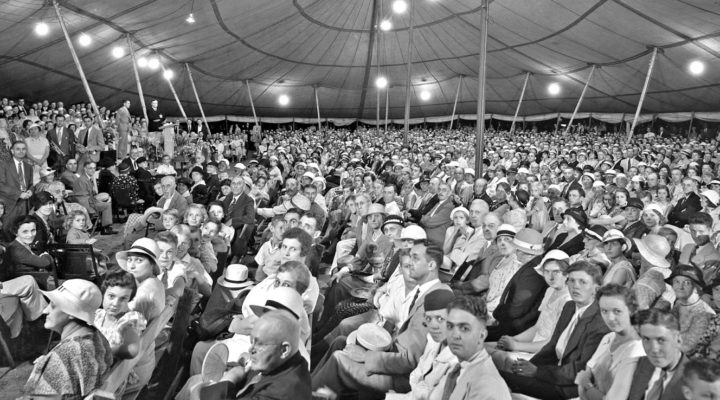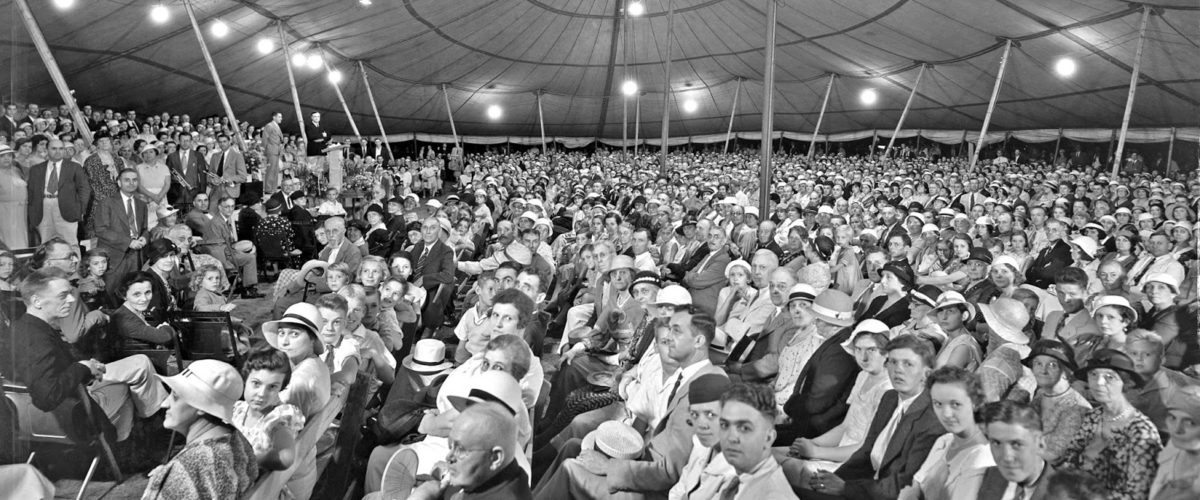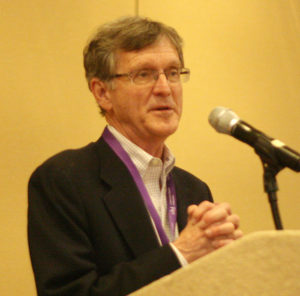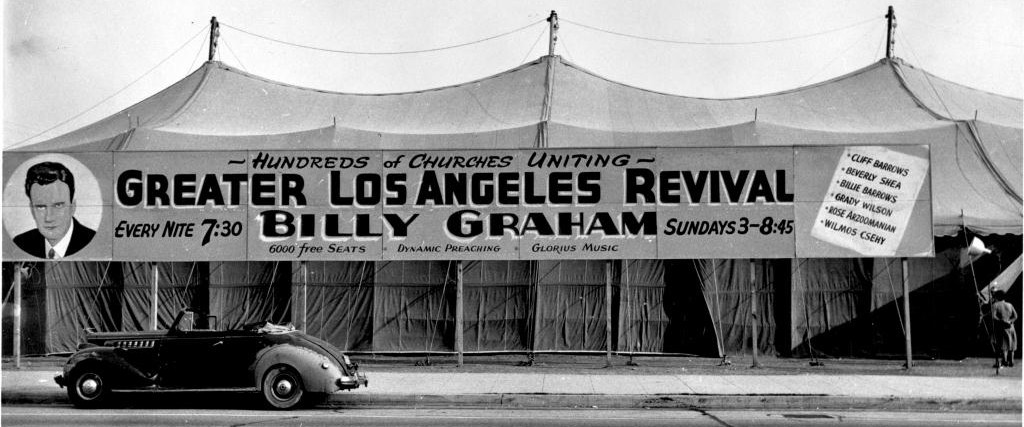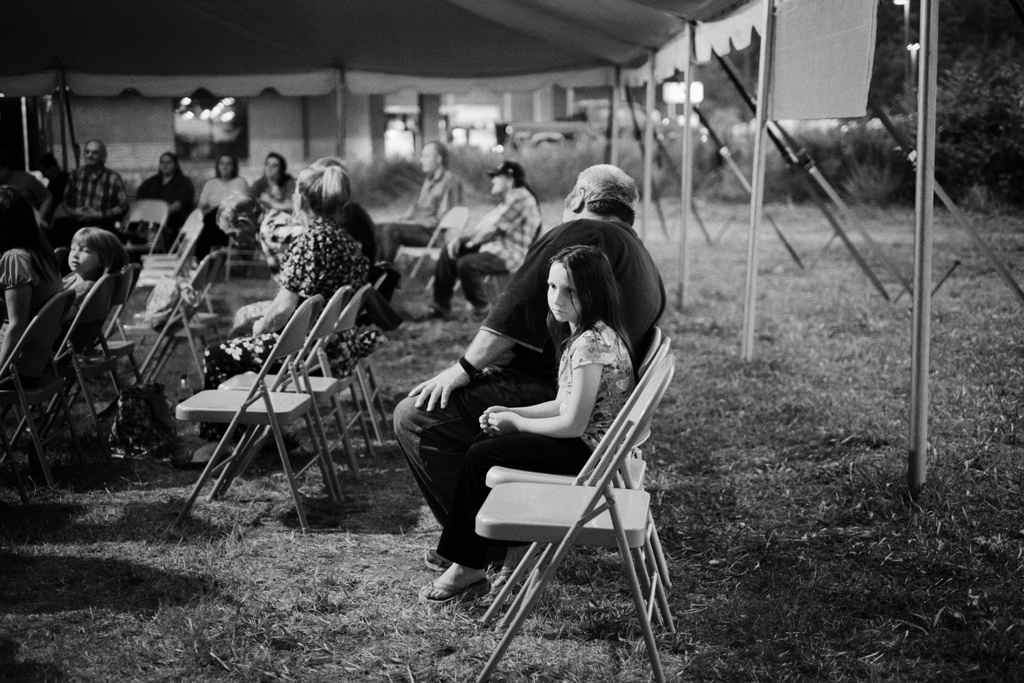Bill Leonard became fascinated with the topic of conversion early in his career, often teaching and preaching about the dramatic, and not-so-dramatic, ways Americans have become Christians throughout U.S. history. And by the early 1980s, Leonard said, the number of conversions, especially among Baptists and other Protestants, was already trending down.
The results are now clearly evident as churches are shrinking and closing and the number of religiously unaffiliated continues to rise.
“Those declines we were seeing in the 1980s are no longer trends — they are serious realities,” said Leonard, professor of Baptist studies and church history at Wake Forest University School of Divinity in Winston-Salem, N.C.
That was the message Leonard shared at a June workshop titled “Once-born, Twice-born, or None? The Protestant Conversion Crisis” at the Cooperative Baptist Fellowship’s General Assembly.
In a subsequent interview with Baptist News Global, Leonard linked the declines in conversions to the demise of church and city-wide revivals once common in the United States, especially in the South.
“There was a time in the late 19th and early 20th centuries where you would have six-week revivals. They would go into little towns and at night everything was shut down,” Leonard said. “This was true for Methodists and Baptists in particular.”
Pentecostals were famous for hosting them, too, and the revival system produced huge stars.
“When Billy Sunday came to town, they shut down the bars,” Leonard said.
Revivals in this era were social events that attracted entire communities.
“It was the best show in town,” he said.
And it was common for Americans to identify their own religious experiences, conversions and returns to the faith to revival time, Leonard said.
During that roughly 200-year revival era, these social and religious gatherings were the mechanism for preaching and the entry-point into church life, and they defined what it meant to be saved, Leonard said.
“A lot of people waited to be saved until the revival came around. It was proof that you were actually saved.”
Relearning the Jesus story
But then America began to change. Populations became more mobile and sports, school and entertainment dominated family life. In response, churches moved away from revivals as the central way of promoting conversion, Leonard said.
Revival lengths gradually dropped from as many as six weeks in length to three, two and one week in duration.
“Many churches got down to three-day revivals, Sunday through Wednesday nights.” Leonard said he’d even read about one-night revivals.
Gone were the days when evangelists could make a decent living preaching revivals, he said. By the 1990s, the few revivals left were often preached by the friends of host pastors, he said.
And right along with the decline in revivals came a drop in baptism rates among Southern Baptists and other Protestants, Leonard said.
The concepts of once-born and twice-born also waned. The once-born were those nurtured in the faith since childhood by church-going families. Leonard said that group has dwindled with the rise of the nones and the related decline in church-going families.
“Churches have to re-learn to tell the Jesus story in ways that get the attention of an increasingly secular society and make the case for why an experience of Jesus is not just important but meaningfully necessary.”
Twice-born Christians were those saved in often dramatic conversions.
What’s emerged instead is a fragmented understanding of the plan of salvation.
“There is no longer a revivalistic norm,” he said. “Churches have to sort it out for themselves.”
Television evangelists and social media are also replete with interpretations, Leonard said.
“Different people are offering different ways of being saved.”
Leonard said the current state of the church is well known. His workshop was meant to trace the origins of the decline.
It was also meant to inspire church leaders to find new forms of relevant outreach that the revival system once provided.
“Churches have to re-learn to tell the Jesus story in ways that get the attention of an increasingly secular society and make the case for why an experience of Jesus is not just important but meaningfully necessary,” he said.

